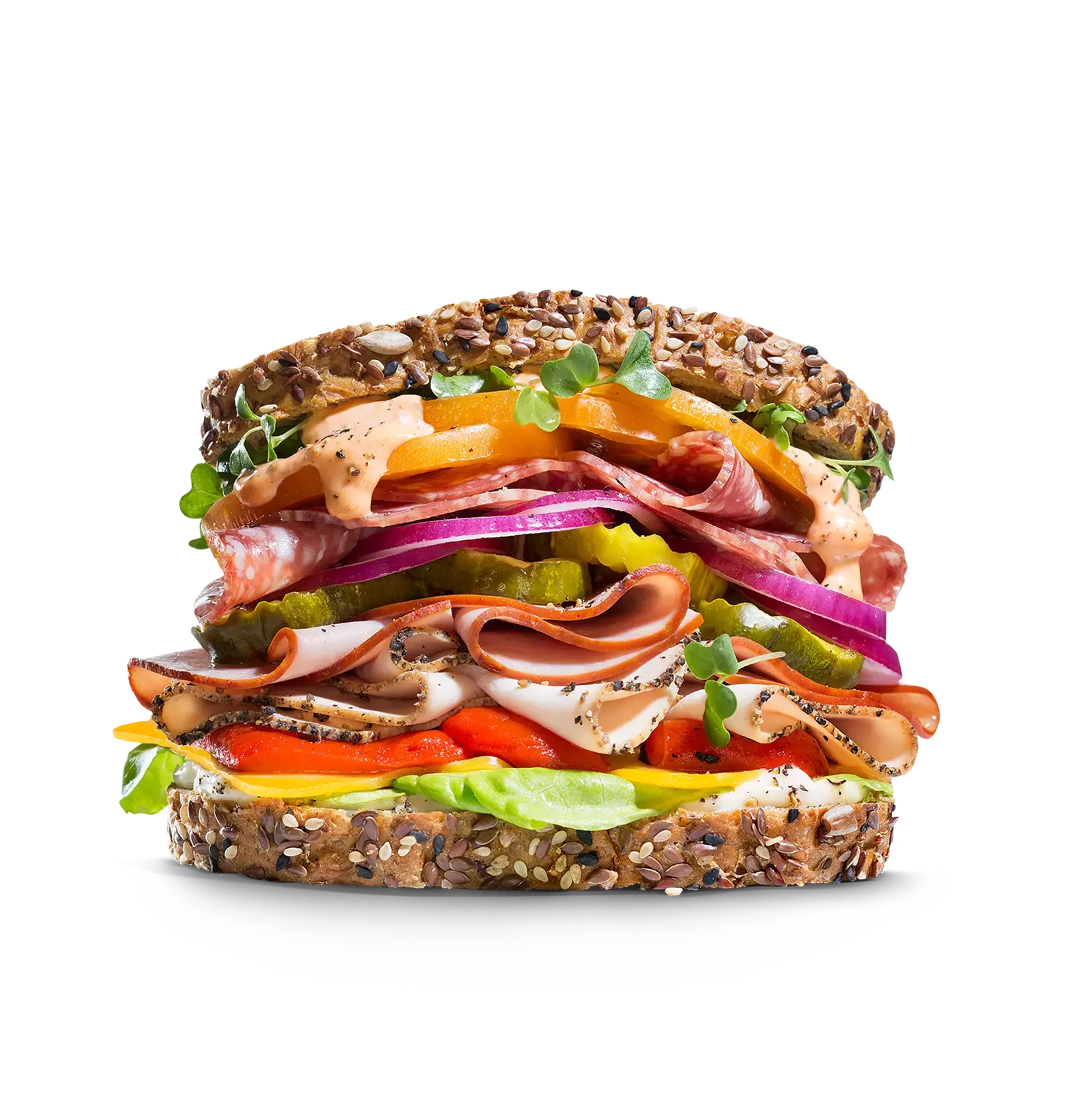7 Questions You Need to Answer Before Using an RFP for Food ERP Selection
7 Questions You Need to Answer Before Using an RFP for Food ERP Selection
7 Questions You Need to Answer Before Using an RFP for Food ERP Selection

For a food and beverage business like yours, the idea of digital transformation can be both exciting and intimidating. The process of researching, evaluating and selecting the enterprise resource planning (ERP) system that will act as your foundation for the future promises great results but can also seem overwhelming when considering your organization’s many needs and the multitude of options available.
The best tool for narrowing down your list of possibilities and assessing the fit of various solutions on the market is a comprehensive request for proposal (RFP). But before you finalize your request form or send anything to potential vendors, you’ll find that there are several unknowns that you need to address, either through internal discussions or research, before you can dive in.
Here are the 7 questions you need to ask—and answer with input from all departments and stakeholders in the organization—as your food and beverage business begins the RFP process.
1. What Are Our Goals for the ERP Selection and Implementation Processes?
Just as every journey needs a destination, your approach to assessing food ERP solutions and deploying your chosen system should be focused on accomplishing specific goals. Answering this question takes creating a vision of what you would consider a successful implementation process and establishing your desired end-state.
To go about this, consider which metrics are most important to your business and how much you expect them to improve once the new platform is in place. For instance, if your leadership team has noticed that efficiency is decreasing as the company expands, set a quantifiable benchmark to aim for as you get up and running with your chosen solution.
Also keep the end users—your staff—in mind, and factor the impact that an ERP will have on their day-to-day responsibilities into your expectations. After all, they’ll be living and working in this future that you’re envisioning, and the well-being of your most precious resource should be a priority.
Through this exercise of looking within the organization and outlining what you hope to achieve, you’ll be better equipped to build out your RFP with the requirements that matter most. A clear picture of where you’re headed is necessary to optimize your request for the unique circumstances of your company.
2. What Are Our Critical Business and Operational Processes?
Depending on the food and beverage segment in which your business operates, certain procedures may require additional attention or carry greater significance as compared to others. For example, if you are a bakery manufacturer that deals with ingredients that have allergen concerns, food safety and sanitation will be of utmost importance.
Define these processes in detail and keep them top-of-mind as you’re crafting your RFP and evaluating your options. Carefully scrutinize how each potential choice of solution would serve to streamline or improve results for your critical processes, and weigh that heavily in your final assessment.
If you find yourself struggling to see how a particular system’s features align with your goals, lean on the knowledge of your potential solution providers to see what insights they might be able to provide. This will serve to both clarify your own understanding of ERP functions and test vendors on their practical knowledge.
3. Does Your RFP Cover Important Sector-Specific Features?
While related to the point above, this question is more about ensuring that your RFP is as complete as possible. If there is a feature that you need for a challenge that is unique to your sector, it should be addressed in clear terms on your request so that you can get the answers you need from the providers you’re considering.
Whether it’s catch weight management for meat, poultry and seafood processors or consignment tracking for fresh produce distributors, there are many functionalities that are vital for individual segments in the food and beverage industry. Your business may occupy a small niche in the larger marketplace, but that doesn’t make your needs any less crucial.
Click here if you're interested in Aptean's RFP template for food ERP software.
4. From How Many Providers Should We Request Proposals?
The answer here frankly comes down to the preferences of your key decision-makers, but you want to be discerning with which providers you send requests while also keeping your options open as much as possible. Keep in mind that you may not receive responses from all those that you contact and balance that with the knowledge that evaluating responses will require both time and effort.
Some food and beverage businesses like to create a “shortlist” of 3 to 5 candidates before sending out their RFPs, while others prefer to solicit proposals from a wider swath of 10 to 15 providers and then narrow down to their finalists. Either approach is viable, and what is right for your organization will depend on your leadership team’s inclinations toward more choice or greater focus on those platforms that show the most promise through initial research.
5. Which Providers Have Real Food and Beverage Industry Expertise?
A generic ERP offering will not do for a highly specialized food and beverage company like yours—you need a solution tailored to the industry. The only way a vendor can offer such a system is through hands-on experience and a firm grasp of the needs of each sector in the marketplace.
To really get a feel for a provider’s knowledge of the food and beverage world, you’ll want to engage in discussions with both their teams as well as their existing clients, if possible. Ask nuanced questions that get to the heart of critical industry concerns, including food traceability, inventory management and quality management, to get a more accurate idea of how well the system would work for day-to-day operations at your facilities.
The ideal vendor will offer suggestions on best practices of their own accord based on their own study and observation. Take special note of those providers who proactively make recommendations, as that speaks to both their commitment to the industry as well as to their clients.
6. How Will We Evaluate the Proposals We Receive?
While some RFPs are simple checklists on which vendors can indicate the presence, limitations or lack of various features, others use scales to indicate a level of fit or even have room for respondents to write comments and give context to their answers. Regardless of the approach you take for your request form, you’ll need to have a way to objectively judge all completed proposals.
Just as teachers often use a scoring rubric to grade school assignments and tests, your business can consider a similar framework to compare the responses of the various providers. You might base yours on different operational areas and how well the solution serves them, covering purchasing, production, sales and more. Or you may choose to stick to a strictly quantifiable indicator of how well the solution fits your needs.
It’s vital, though, that you also assess the cultural fit between your organization and the candidates. You’ll be working together on a complicated and involved project and forming a long-term relationship, so it’s important that you share values and communicate well.
7. How Can Our Provider Act as a Partner During Implementation?
The best food ERP solution providers offer guidance in the process of deployment, and that entails working together closely for months, if not years. You need a vendor who can help create the implementation roadmap based on industry best practices and their experiences with other similar food and beverage businesses.
Creating milestones and establishing the different phases of the process is crucial for measuring progress and clearly communicating with your internal teams regarding how things are going and what to expect in the future. Your provider should assist with that planning alongside your leaders and department heads, because it will take everyone being on the same page and believing in the shared vision to get where you’re going.
What Sets Aptean Apart as a Food and Beverage ERP Provider?
As outlined above, there is no shortage of special considerations and critical decisions to make in the selection of a food ERP system. You want to ensure you make the right choice, as having to repeat the process after a failed attempt would set you back on both time and money.
Much rests on that all-important step of assessing a provider’s expertise with the food and beverage industry—you need a vendor that really “speaks your language” and has designed their solution with that knowledge. Otherwise you might find that costly and cumbersome customizations are necessary, or worse yet, that the company behind the platform simply isn’t reliable.
Aptean has the kind of track record that speaks for itself, with decades of collective food and beverage industry experience and hundreds of successful ERP implementations. We also have a strong foundation, with solutions built on Microsoft Dynamics 365 and cloud deployment options that offer automatic updates, dedicated support and maximum system uptime.
Would you like to learn more about Aptean's food ERP solution and how it’s the right choice for your organization? Contact us today for further information.
Get in Touch Today to Speak With an Expert in Your Industry
To grow your business, you need a food ERP built specifically for your industry challenges. We're ready to help—reach out today and we'll help you find the right solution.



 Jack Payne | Vice President, Product Management & Solutions Consulting
Jack Payne | Vice President, Product Management & Solutions Consulting